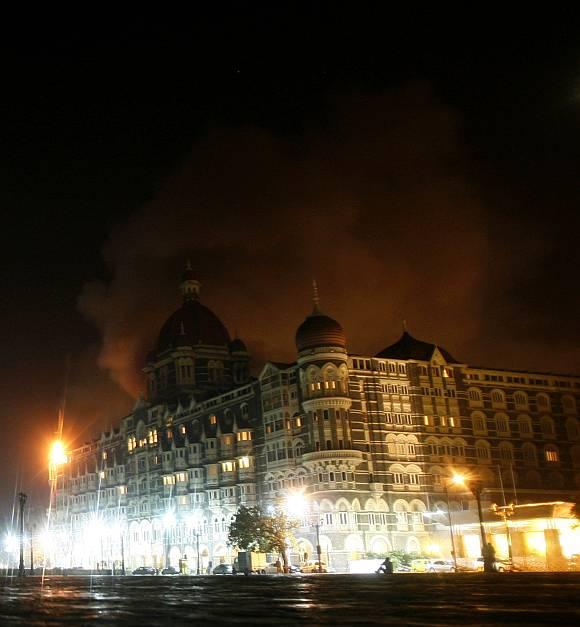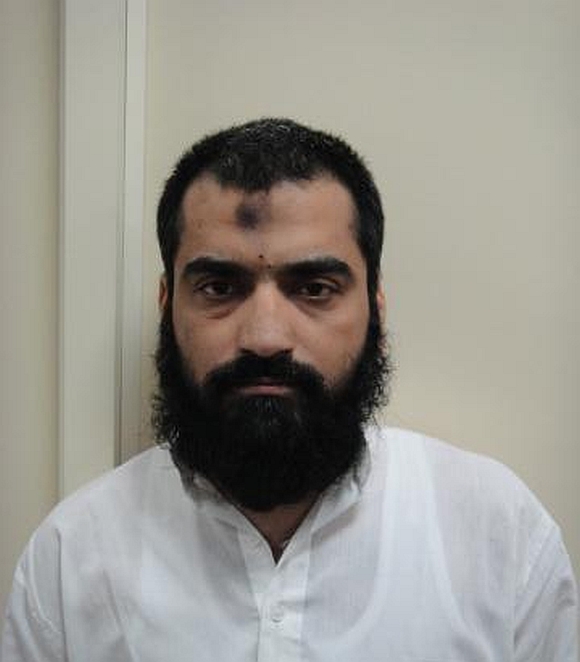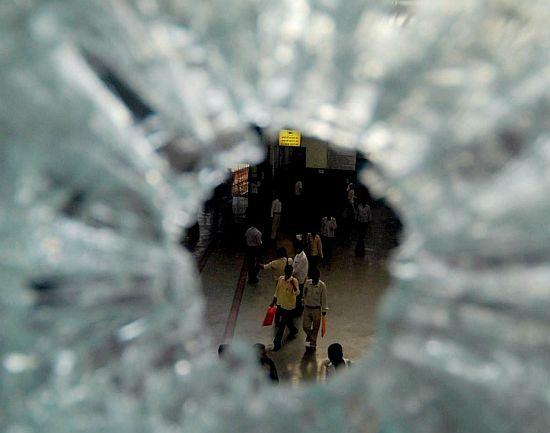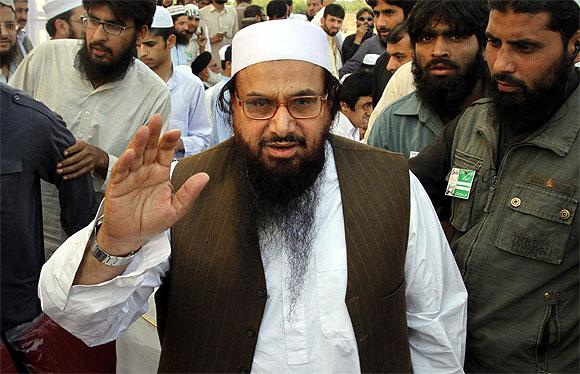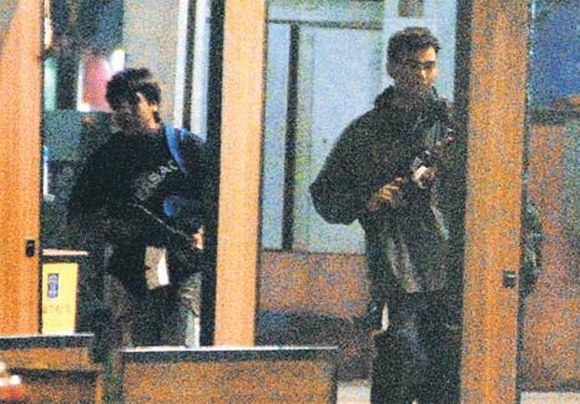 | « Back to article | Print this article |
Krishna will have to SHOW his serious intent to Pak
Every time our diplomats say before they land in Pakistan that they have got clinching evidence of Pakistan's role in the 26/11 attack, and each time, the retort been: 'give us more proof'. As External Affairs Minister S M Krishna embarks upon a visit to Pakistan, the talks would again focus on terrorism and the 26/11 attack in Mumbai, says Vicky Nanjappa
It is obvious that Pakistan does not believe or chooses not to believe what India has been telling them. There has been the 26/11 main accused Ajmal Kasab's confession statement and he has even convicted and awarded a death sentence by the highest court in India. Then came our investigations and now we have in custody a very crucial operative known as 26/11 key handler Zabiuddin Ansari alias Abu Jundal.
India hopes to make a push with Jundal's confessional statement, which will come up for discussion. Although Pakistan is likely to reject it, India's trump card his time around is the similarities between the statements made by Jundal and another important operative, David Coleman Headley.
Click NEXT to read further...
Krishna will have to SHOW his serious intent to Pak
Experts say that Pakistan may argue that Jundal's statement is not acceptable as it was made on Indian soil, but the fact that it matches what Headley has said before the Federal Bureau of Investigation in the US and would give Pakistan something to think about.
When Jundal was apprehended, the first thing India did was try to match up the voice samples of the 26/11 handlers. Today it has been ascertained beyond doubt that one of the voices that guided the 26/11 attackers was that of Jundal's.
With the cooperation of foreign agencies, India has also managed to ascertain that the calls were being made from the Malir area in Karachi in Pakistan, which is close to the international airport.
Pakistan would find this tough to deny and would have to explain how such a major operation, considered to be a war against India was monitored right from within the heart of the city.
Click NEXT to read further...
Krishna will have to SHOW his serious intent to Pak
This is the specific part of the conversation which helped India ascertain this aspect to the 26/11 probe.
Jundal: Listen
Terrorist: Yes
Jundal: Kill them
Terrorist: It is all quiet by Allah's wish
Jundal: Just shoot. If there is firing later, then you won't not know which direction it's coming from. Just do it now. Make those people sit up and shoot them in their head from the back. Do it in Allah's name.
Terrorist: I killed two. Today is Friday and it will be the final fight.
Jundal: Shoot them all. Just do it.
Terrorist: The firing has started.
Jundal: Take cover now. Are you hit?
Terrorist: Yes, on my side and leg.
Jundal: Allah will protect you.
Another handler: May Allah protect you.
While this is one part of the proof, the more important aspect would be the comparison that has been drawn Jundal's and Headley's statements.
Click NEXT to read further...
Krishna will have to SHOW his serious intent to Pak
Pakistan may try and get away by saying that the likes of Jamaat-ud-Dawa chief Hafiz Saeed and his operational commander Zaki-ur-Rehman Lakhvi are not state players and there is a valid trial going on against them. However, they have been in denial regarding the state players who were involved in the plot.
Headley, in his confession had said that there were three civilians, two majors and a colonel who were part of this attack. Jundal too names the same three persons -- Major Samir Ali, Major Iqbal and Colonel Shah. Both have been able to confirm that these were officers (serving) in the Inter-Services Intelligence and the army, and were a part of the operation all the way.
Jundal says that it was Major Iqbal who provided Rs 20 lakh for the boat that was initially purchased for the 2008 attacks. On the other hand, Headley had confessed that it was the same major with whom he interacted, and it was through him that the money for the survey of the targets was passed on to him through Sajid Mir.
National Investigation Agency sources say that Jundal's and Headley's statements are not very different. Although both had different roles to play, their handlers were the same.
Click NEXT to read further...
Krishna will have to SHOW his serious intent to Pak
Headley, being an important player, was handled by those in the establishment. It was important that such high profile personalities handled him because they ncould use their use their influence if he got into any trouble.
On the other hand, Jundal too met with the same officers who were present at the control room at the time of the operation. While the big bosses of the Lashkar-e-Tayiba took charge of all the command operations, the finer aspects -- survey, control room, and arranging for a landing point for the attack was all done under the supervision of these officers.
Both Jundal and Headley have said the same thing:
"Every detail had to be run by the officials who were part of the army and the ISI. It was only them apart from Hafiz Saeed and Lakhvi who knew everything about the attack, while the rest worked on a need-to-know basis."
Both have also said that neither of them could do anything without consulting these officers. Headley had said that he interacted through phone and mail, while Jundal met them face to face.
Headley's confession says that these officers were present at the control room, a fact confirmed by Jundal. It also said that the officers had told them to destroy the control room once the operation was over.
TOP photo features of the week
Click on MORE to see another set of PHOTO features...
